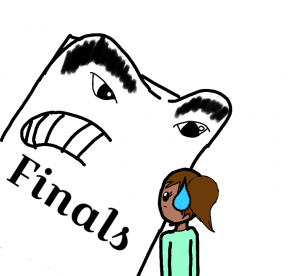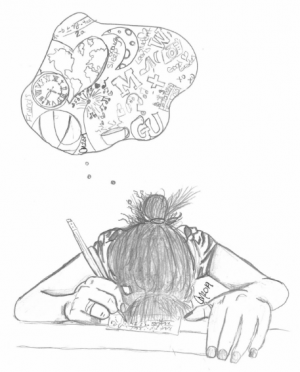Finals: Whether teachers bump grades varies
May 20, 2019
During the last few weeks of school before summer break, suddenly more students are concerned with their grades, even calculating them down to the exact percentage.
It’s not uncommon for students who are close to the next letter grade to ask teachers to curve or bump up their grades a few points.
While that would improve a student’s grade, each teacher’s policy is different.
“It has to be work,” Ed Belsan said, who teaches English 12, Bible literature and AP literature. “I’ll accept assignments never turned in for half credit… I tell the kids it’s like trying to get over the wall in Marine boot camp. I’ll stand at the top, I’ll cheer for you. I’ll throw a rope down to you, I might even pull on the rope, but you have to climb over the wall.
“Kids have a misunderstanding sometimes and think that teachers like them, so they’ll just throw in a few points and raise their grade. To me, that would be a lack of integrity. I’m trying to teach all kids fairly, so if you earn a passing grade, you will pass. If you do not, you will not.”
Austin Wuthrich, who teaches world and US history, doesn’t bump grades.
“I don’t just put in points to bump grades,” he said. “I do take late work, so if kids all the sudden care towards the end of the semester and they have a bunch of missing assignments and a bunch of zeroes, I’ll allow them to turn in late work, and that does bump their grade.
“But I don’t ever just go to bump grades.”
Katherine Murphy, who teaches ASL 1 and ASL 2, doesn’t bump grades, either. Instead she has cumulative extra credit points.
“They collect points throughout the semester, and then I give them the points at the end of the semester,” she said. “They have a stamp sheet, and they can get stamps throughout the semester, and when they turn them in and take the final, I give them the extra credit points. But I don’t (bump grades).”
Geometry and Reality 101 teacher Robert Rhodes will bump grades on a case-by-case basis.
“If they’re nice and good students in my class, I probably would, because that would be participation and attitude and I can add that at the end,” Rhodes said. “But if they had a bad attitude, or were kind of like head-butting me during the year, then I probably wouldn’t. So it pays off to be a good student and get along with your teachers.”
Principal Tim Hamblin said it’s up to teachers to decide.
“I like to give teachers the autonomy, they are the person working with the kid and there are many times I’m glad that is the case,” Hamblin said, “I don’t want students to just be sitting in an artificial intelligence computer. A teacher has the ability to see some of those environmental things that might impact the kids performance. If you got a kid and the parent are not really around and has to raise their siblings, well that kid may work really, really hard and their grades might not reflect that.”








